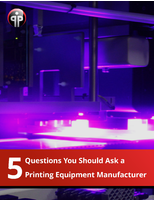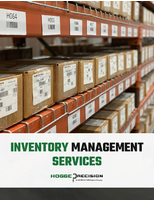ASTM Standard addresses self-consolidating concrete mixture QC.
Press Release Summary:
ASTM C1712, Test Method for Rapid Assessment of Static Segregation Resistance of Self-Consolidating Concrete Using Penetration Test, helps concrete producers develop and provide means of QC when measuring and maintaining stability of self-consolidating concrete mixtures. According to Mark Bury, chair of subcommittee responsible for this standard, test method can be used in laboratory or field, and results can be obtained within minutes of self-consolidating concrete production/placement.
Original Press Release:
Quality Control of Self-Consolidating Concrete Mixtures Covered in New ASTM International Standard
W. CONSHOHOCKEN, Pa.-A new ASTM International standard covers an easy way to help concrete producers develop and provide a means of quality control when measuring and maintaining the stability of self-consolidating concrete mixtures.
The new standard, ASTM C1712, Test Method for Rapid Assessment of Static Segregation Resistance of Self-Consolidating Concrete Using Penetration Test, was developed by Subcommittee C09.47 on Self-Consolidating Concrete, part of ASTM International Committee C09 on Concrete and Concrete Aggregates.
According to Mark Bury, product manager, Admixture Systems, BASF Corp. Admixture Systems, and chair of C09.47, the test method described in ASTM C1712 can be used in either the laboratory or in the field. "Because this is a rapid test, the results can be obtained within minutes of self-consolidating concrete production or placement, allowing for adjustments to the mix in the lab or on the fly if the desired segregation is not achieved," says Bury.
Bury says that segregation results obtained from ASTM C1712 correlate well with ASTM C1610, Test Method for Static Segregation of Self-Consolidating Concrete Using Column Technique, a standard used in laboratories. However, because C1712 is a new standard, the subcommittee would be interested in feedback from its users, so that suggested improvements can be discussed and modifications made.
"A new test method such as ASTM C1712 can always be enhanced by evaluating the practical experiences gained from users, especially after the first year of use," says Bury. "C09.47 is excited to make progress in meeting industry demands and is open to and welcomes comments."
The subcommittee is also planning on developing a proposed new standard for casting self-consolidating concrete specimens without using mechanical assistance or vibration for consolidation and is looking for comments, practical experiences and studies from concrete industry professionals in this area.
To purchase ASTM standards, visit www.astm.org and search by the standard designation number, or contact ASTM Customer Relations (phone: 610-832-9585; service@astm.org). ASTM International welcomes and encourages participation in the development of its standards. For more information on becoming an ASTM member, visit www.astm.org/JOIN.
ASTM International is one of the largest international standards development and delivery systems in the world. ASTM International meets the World Trade Organization (WTO) principles for the development of international standards: coherence, consensus, development dimension, effectiveness, impartiality, openness, relevance and transparency. ASTM standards are accepted and used in research and development, product testing, quality systems and commercial transactions.
View this release on the ASTM Web site at www.astmnewsroom.org.
ASTM Committee C09 Next Meeting: Dec. 5-8, December Committee Week, New Orleans, La.
Technical Contact: Mark Bury, Admixture Systems, BASF Corp., Beachwood, Ohio, Phone: 216-839-7266; mark.bury@basf.com
ASTM Staff Contact: Scott Orthey, Phone: 610-832-9730; sorthey@astm.org
ASTM PR Contact: Barbara Schindler, Phone: 610-832-9603; bschindl@astm.org




